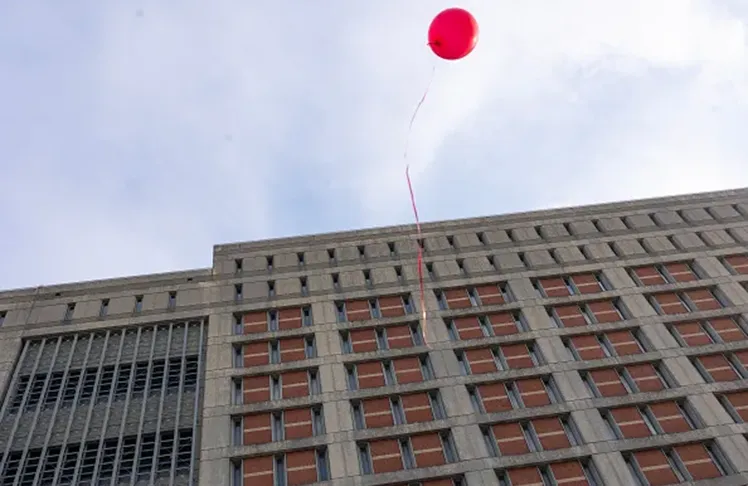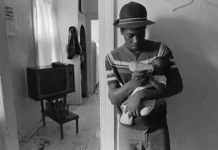
Earlier this month, as federal investigators prepared a criminal case against him, the music and entertainment mogul known as Diddy flew from his Miami mansion to New York City and checked into a posh Manhattan hotel suite, where he awaited his fate in luxury and comfort.
On Wednesday, after agents arrested him on racketeering and sex trafficking charges, the man also known as Sean Combs woke up behind bars in the Metropolitan Detention Center in Brooklyn, a squat, hulking jail notorious for harsh conditions, overcrowding, and violence. He was sent there after his lawyer failed to convince a judge to let him serve detention in his South Florida home — a sprawling estate with pools, a guest house, and spa.
It was a drastic change in circumstance for hip hop’s first billionaire: trading swank digs for a facility widely considered “a hellhole.” But it has also brought attention to the issue of jails and pretrial detention — what one report calls “the most overlooked human rights crisis of our time.”
Studies have shown jails across the country are rife with crime, drug abuse, and situations that can worsen mental health among detainees. Although most jail detainees haven’t been convicted of crimes and are legally presumed innocent, investigations have found they are routinely subject to abuse from staff and other detainees, ranging from harassment and destroying belongings to physical and sexual abuse. Too often, the result is suicide or death.
As with most elements of the carceral state, the nation’s jails and detention centers house a disproportionate number of Black men and women.
“Black people made up, on average, 12% of the local community populations but more than double that, 26%, of the jail populations,” according to a Pew Research Center report released last year. In more than 70% of counties where data was available, “the share of the jail population that was Black was at least twice that of the locality as a whole.”
Overcrowding contributes to problems in prison, but most detainees can’t afford to pay bail to secure their release. A Prison Policy Initiative found that the average bail for a felony defendant is around $10,000, which is about eight months of income for the typical detainee.
Dying by the Dozen
While crime and abuse is rampant, most reports show the overriding problem with jails and detention centers is death, and the problem is widespread. Nearly every major U.S. metropolitan area has a jail or detention center in which detainees are dying by the dozen, year after year.
In Los Angeles, for example, the squalid L.A. County Jail — known as Twin Towers — typically records the highest annual death toll of any jail in the country. It’s operated at nearly 17% over capacity since 2023, and so cramped detainees have been known to sleep head-to-toe on the concrete floor. Those conditions likely contribute to the 23 deaths there since January — including back-to-back fatalities earlier this month.
In Maricopa County, Arizona, the jail system that serves the Phoenix metro area has a death toll one researcher described as “astronomical.” More than a quarter of the 43 deaths recorded there in 2022 were suicides.

The Cook County Jail, which houses detainees arrested in metro Chicago, recorded its deadliest year ever in 2023, with 18 fatalities, even though the chronically overcrowded jail was far less cramped than usual. And in Pennsylvania, so many jail deaths were miscategorized or went unreported that a team of investigative journalists created a statewide database.
According to a report in Health Affairs, an underlying cause of most jail deaths “is heavy reliance on incarceration” instead of home detention. The cycling of people into and out of jail, the report states, exacerbates “the impacts of addiction, mental illness, and health inequity … with dire consequences.”
While the federal government does not make public its nationwide statistics on jails, a report by Think Global Health lays out the scope of the issue.
“One in three people incarcerated are detained in a jail—that’s more than 700,000 people on any given day in the United States,” according to the report, issued in January 2023. “More than 80 percent of people being held in 2,850 U.S. local jails are not yet convicted of a crime and are legally presumed innocent. The vast majority have been arrested for nonviolent offenses.”
“Not Fit for Pre-trial Detention”
Study after study has found that Black detainees are overrepresented in the nation’s jails.
“Black people made up, on average, 12% of the local community populations but more than double that, 26%, of the jail populations,” according to a Pew Research Center report released last year. In more than 70% of counties where data was available, “the share of the jail population that was Black was at least twice that of the locality as a whole.”
That statistic, researchers argue, is no coincidence.
“There is a historic relationship between unemployment, structural racism, and incarceration rates,” according to the Think Global Health report. “Crime insecurity and substandard development and governance correlate with disproportionate pretrial detention globally. Financial insecurity also exacerbates underlying causes of criminality.”
In Combs’ case, the Metropolitan Detention Center is well known for violence, part of the reason his lawyer vociferously argued the rap impresario should be granted home detention. The Daily Beast reported that, in a motion for bail filed earlier on Tuesday, Combs’ attorney noted that “several courts in this District have recognized that the conditions at Metropolitan Detention Center are not fit for pre-trial detention.”
Earlier this summer, “an inmate was murdered. At least four inmates have died by suicide there in the past three years,” according to the court filing.
The MDC’s reputation is so bad that a judge refused to send an elderly defendant there, pointing to “dangerous, barbaric conditions,” The Beast reported. The New York Times reported that at least three other judges made the same decision in recent years, for the same reason.
Advocates for incarcerated people have long argued as Combs’ lawyer has done — that jails aren’t fit for people to be held in. But it seems the judge has made it clear: A man who told us for the past 30 years that he’s a “bad boy for life” doesn’t get a pass.















